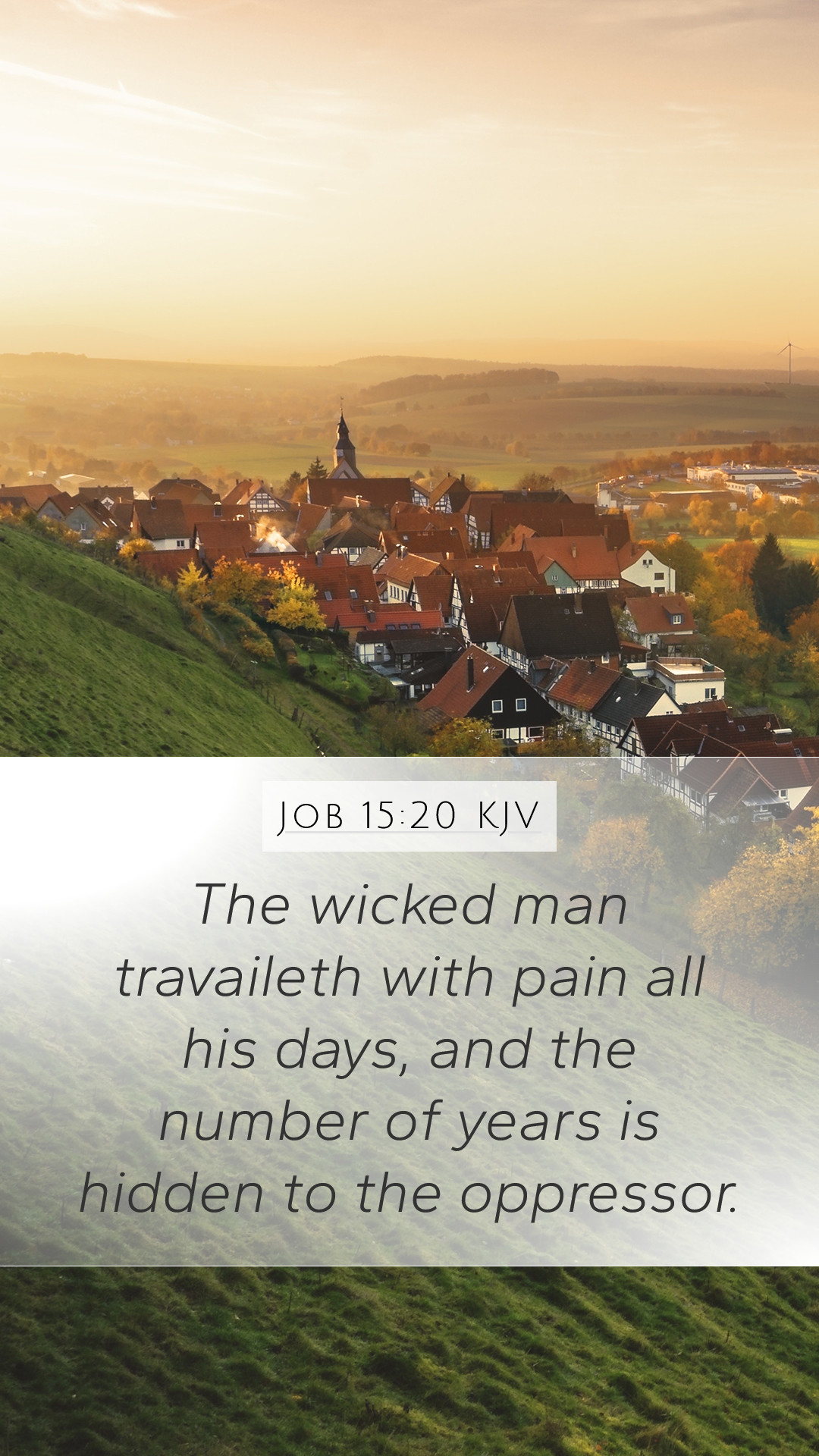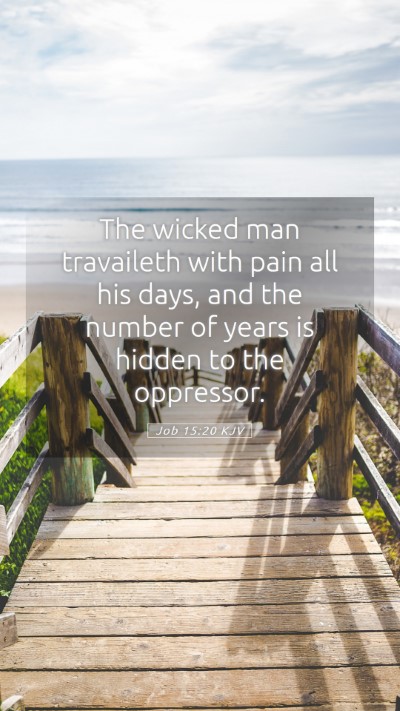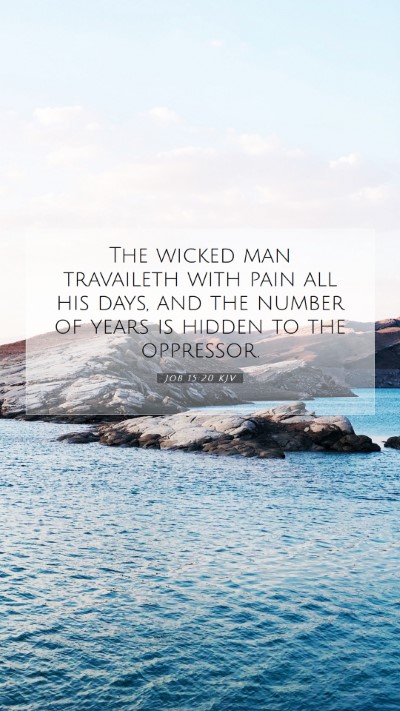Bible Verse Meaning: Job 15:20
Job 15:20 states: "The wicked man travails with pain all his days, and the number of years is hidden from the oppressor." This verse reveals profound insights into human suffering, the consequences of wickedness, and the nature of divine justice.
Understanding Job 15:20
The verse addresses the persistent suffering of the wicked, illustrating that a life characterized by evil is fraught with anguish and turmoil. The confusion over the number of years, particularly for the oppressor, suggests both a divine concealment of judgment and the fleeting nature of their life.
Bible Verse Commentary
Examining the various commentaries sheds light on the complexities of this passage:
-
Matthew Henry Commentary:
Henry emphasizes that suffering is often the fate of the wicked. He notes that pain is a constant companion for such individuals, suggesting that their lives are marked by agony due to their transgressions. Henry also points out that the 'hidden years' signify the uncertainty of life for the wicked—a life spent without hope of redemption.
-
Albert Barnes' Notes on the Bible:
Barnes interprets this verse as a reflection on the fleeting and hidden nature of the wicked's life. He elaborates on how their persistent pain serves as evidence of their moral state, indicating that their days are overshadowed by dread and a lack of peace. Barnes also contrasts this with the lives of the righteous, who may face trials but have the assurance of God's presence.
-
Adam Clarke's Commentary:
Clarke provides an interpretation focusing on the deep emotional and psychological afflictions that plague the wicked. He highlights the idea that the oppressor, while seemingly thriving, actually suffers internally. Clarke expands on the notion that suffering is not merely external but can also signify a separation from divine favor, creating a profound sense of despair.
Bible Verse Interpretations
Interpretations of Job 15:20 revolve around several key themes:
-
The Nature of Suffering:
This verse emphasizes that suffering is inherent to wickedness; those who engage in evil often encounter a life of torment both externally and internally.
-
The Darkness of Life:
The 'hidden years' reflect the uncertainty of life for the wicked, indicating that their future is uncertain and, quite possibly, grim. This conveys a message about the precariousness of a life apart from God.
-
The Contrast with the Righteous:
By illustrating the plight of the wicked, the passage indirectly highlights the peace and assurance enjoyed by the righteous, who, despite their struggles, are under God’s care.
Scripture Analysis
Through this scripture, we can gain insights relevant to the wide spectrum of human experience. It raises questions about:
- How suffering shapes a person's character.
- The role of evil and suffering in relation to divine justice.
- The hope for redemption even amidst anguish, and the contrast between wickedness and righteousness.
Applying Job 15:20 to Daily Life
For believers today, this verse serves as a cautionary message about the consequences of choosing a path away from God. It encourages:
- Reflecting on one's life choices and their alignment with divine principles.
- Finding hope amidst suffering, as the verse reassures that there is a divine order to life, even if it seems hidden.
- Understanding the importance of community and support through Bible study groups to confront the struggles represented in the verse.
Significance of Job 15:20
This verse is significant in the context of biblical literature as it reflects the broader themes of suffering and divine justice found throughout the book of Job and beyond.
Cross References
Job 15:20 relates to several other biblical verses that enrich its understanding:
- Job 3:20-23: Expresses despair over life in affliction.
- Psalm 73:17-19: Contrasts the end of the wicked with the fate of the righteous.
- Proverbs 13:15: Discusses the consequences of wickedness and the promise of peace to the righteous.
Conclusion
In conclusion, Job 15:20 serves as a poignant reminder of the pain associated with a life devoid of righteousness and the assurance of eventual divine justice. Through a thoughtful study of this passage, believers can find deeper meaning and guidance in their spiritual journeys.


